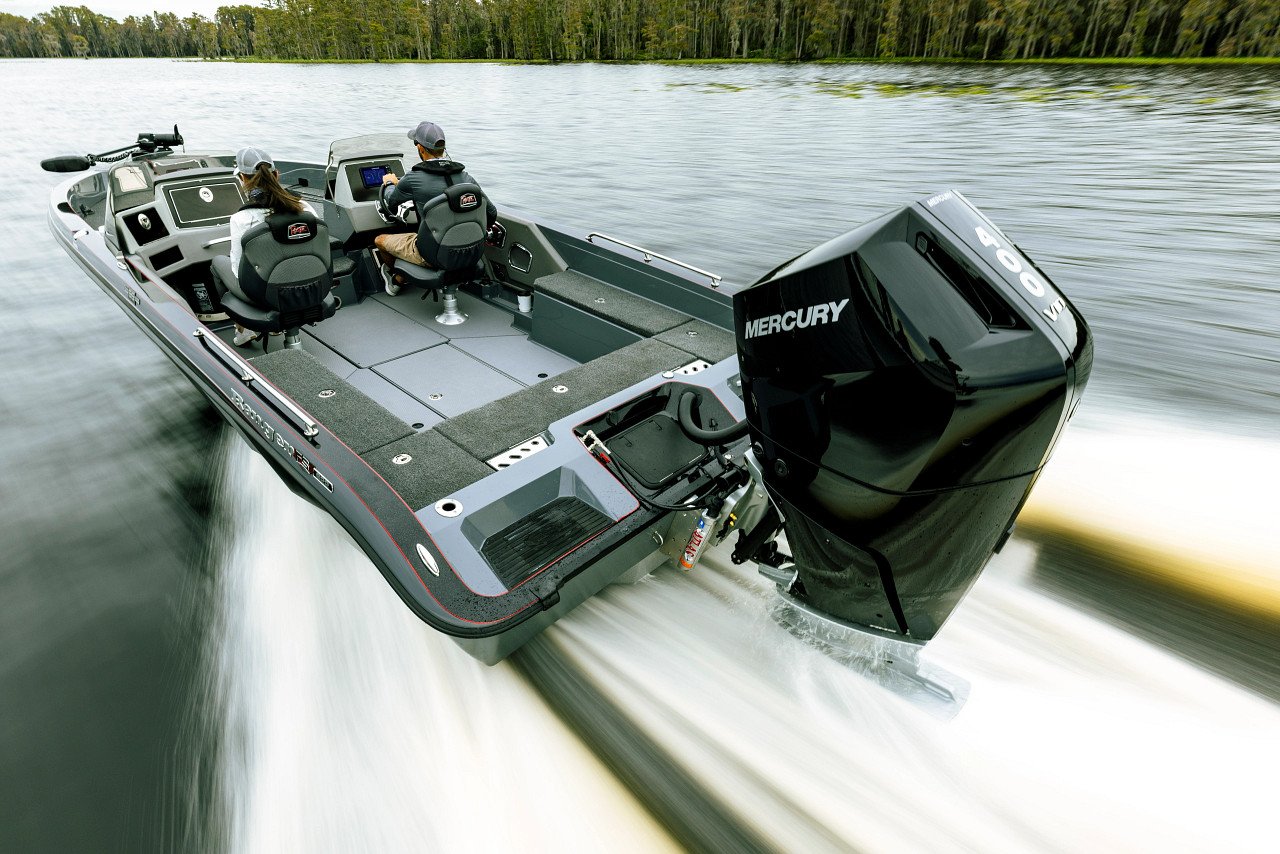Mercury Marine Wades Into the Future with new Electric Outboard: The 7.5E Avator
In life we often wonder about the future and how life might be different in some distant version of the universe. And as a result we get excited about the possibilities but we also fear change and harken back to the past. The good old days is usually a euphemistic iteration of a simpler time. The electric vehicle revolution has taken a stronghold on the automotive world, but not the marine world. EVs are exciting and can demonstrate some benefits over combustion powered vehicles, with a few drawbacks. With boats, battery electric power mostly has drawbacks. But, Mercury has started the venture into fully electric outboards and introduced the Avator line, beginning with a 750 watt version called the 7.5E. Is this the future?
The design is inline with the new Mercury look. And, the interchangeable battery is pretty slick.
To clear a few things up, there has been electric boats for a long time, and they are usually small trawler style boats with an electric motor powering a direct drive shaft that run 8 MPH, maximizing range and rationing power usage. Planing hulls need considerable power to maintain speed, thus rendering battery powered motors as very limited on the water. I actually really like the idea of low speed, long range EVs for water use in protected waters. It's a great solution for little cruisers or passenger boats that don't need to plane.
The Mercury Marine Avator display at the 2022 Miami International Boat Show.
Mercury Marine had decided to start with a 750 watt version, equivalent to about 3.5 HP, and will follow up with a 25E and 35E soon; presumably about 9.9 HP and 15 HP respectively. This is a smart move in my opinion. In cars, range is accomplished with a massive battery, and dramatic performance is just a benefit and byproduct of having that massive battery powering electric motors; which are extremely powerful and efficient. With a boat, the added weight of batteries to compensate range immediately negatively affects the performance of the boat. Weight negatively affects automobiles too, but not nearly to the extent it does with boats.
Boats are under constant load. Imagine driving your Tesla, Rivian or Lucid up a steep incline endlessly, range will suffer measurably. Before Tesla, electric cars were glorified golf carts, but that doesn't sell. Ultra fast luxury cars are a much easier sell. That strategy doesn't work the same way for boats. Vision Marine Technology is trying to add their electric outboard to regular runabouts and pontoon boats, but they will be severely compromised in performance. Mercury's strategy is more promising.
By starting with a compact and portable outboard that features an interchangeable battery you solve two major drawbacks; one is efficiency and the other range anxiety. A 7.5E on a little skiff or 12ft aluminum boat can happily run at low speed for hours. For protected waterways where fishing, commuting and adventure is on the menu, the Mercury Avator is good. The drawback is you won't be setting any speed records, but that's okay.
For a tender, localized fishing or the need to just cross a small lake, I can see the advantages of the Avator. Repowering a small inflatable for a tender is a great idea. Once Mercury brings out a 25E and 35E, there should be some great opportunities to test the electrics in the real world. Most boaters in the under 20 HP range are trolling, running to a campsite or using it as a tender. When I was growing up, we ran aluminum boats with 9.9 to 25 HP engines all the time, and they were incredibly utilitarian and practical.
If you really want to save the planet, it’s hard to beat the electric outboard sailboat option. You could easily sail to across the Atlantic in this thing while saving the planet. And even if you didn’t make it, at least you did your part.
Torqueedo is a brand that has been making electric outboards in various power for many years, and they have trouble gaining a critical mass because the larger batteries they use are prohibitively expensive and heavy for the small boats they are designed for.
Do I see full electric taking over the performance boat world anytime soon? No. I have made arguments that mild hybrid systems can be utilized in performance applications, but battery weight and the challenging efficiency issues of boats will make full battery powered boats a slow speed affair for a while yet. And that's okay. Much of the implementation of electric marine engines will actually be on the boat design side; more efficient lightweight hulls will be necessary. For now, slow and steady wins the race.
Technical Highlights:
Weight: 43 lbs. Without battery
Total Weight with battery: 59 Lbs.
Interchangeable battery: 1KwH Batteries can be removed and installed in seconds
Adjustable tiller that folds into a carrying handle
Home charing with 110 watts.
Shaft lengths of 15”, 20”, 25”.
Optional remote digital controls.
You want efficiency, now we’re talking.









